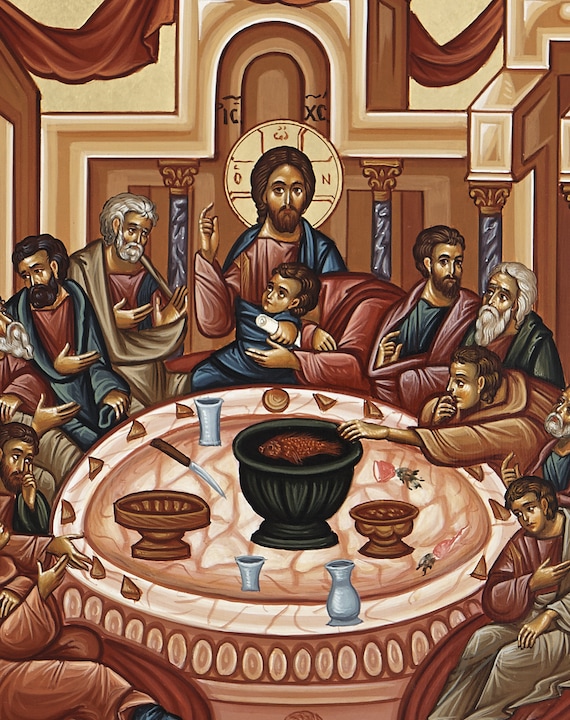The Church's teaching never changes. It may be further explained philosophically or analogically, but the teaching itself never changes!
By Philip Kosloski
When you look at the writings of the first Christians, you see that the Catholic teaching on the Eucharist has never changed.
Jesus said to his apostles, “Amen, amen, I say to you, unless you eat the flesh of the Son of Man and drink his blood, you do not have life within you. Whoever eats my flesh and drinks my blood has eternal life, and I will raise him on the last day” (John 6:53).
In recent centuries much debate has surrounded those words, but from the beginning Christians took Jesus at his word and believed the Eucharist was truly Jesus’ body and blood, and not just a symbol. Here is a sampling of what various Christian leaders of the first few centuries said about this teaching.
Early Christian writers on the Eucharist
“I have no taste for the food that perishes nor for the pleasures of this life. I want the Bread of God which is the Flesh of Christ, who was the seed of David; and for drink I desire His Blood which is love that cannot be destroyed.” (St. Ignatius of Antioch – 1st century)
“This food we call the Eucharist, of which no one is allowed to partake except one who believes that the things we teach are true, and has received the washing for forgiveness of sins and for rebirth, and who lives as Christ handed down to us. For we do not receive these things as common bread or common drink; but as Jesus Christ our Savior being incarnate by God’s Word took flesh and blood for our salvation, so also we have been taught that the food consecrated by the Word of prayer which comes from him, from which our flesh and blood are nourished by transformation, is the flesh and blood of that incarnate Jesus.” (St. Justin Martyr – 2nd century)
“[Christ] has declared the cup, a part of creation, to be his own Blood, from which he causes our blood to flow; and the bread, a part of creation, he has established as his own Body, from which he gives increase to our bodies.” (St. Irenaeus of Lyons – 2nd Century)
“Since then He says that, if anyone eats of His bread, he lives forever, as it is manifest that they live who attain to His body and receive the Eucharist by right of communion, so on the other hand we must fear and pray lest anyone, while he is cut off and separated from the body of Christ, remain apart from salvation, as He Himself threatens, saying: ‘Unless you eat the flesh of the Son of man and drink His blood, you shall not have life in you.’ And so we petition that our bread, that is Christ, be given us daily, so that we, who abide and live in Christ, may not withdraw from His sanctification and body.” (St. Cyprian of Carthage – 3rd century)
“And extending His hand, He gave them the Bread which His right hand had made holy: ‘Take, all of you eat of this; which My word has made holy. Do not now regard as bread that which I have given you; but take, eat this Bread, and do not scatter the crumbs; for what I have called My Body, that it is indeed.’” (St. Ephrem of Syria – 4th century)

No comments:
Post a Comment
Comments are subject to deletion if they are not germane. I have no problem with a bit of colourful language, but blasphemy or depraved profanity will not be allowed. Attacks on the Catholic Faith will not be tolerated. Comments will be deleted that are republican (Yanks! Note the lower case 'r'!), attacks on the legitimacy of Pope Leo XIV as the Vicar of Christ, the legitimacy of the House of Windsor or of the claims of the Elder Line of the House of France, or attacks on the legitimacy of any of the currently ruling Houses of Europe.